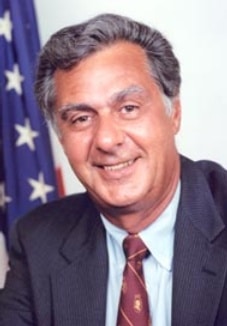This is the first of a three-part series on Former House Majority Leader Dick Armey (R) and his relationship to Big Tobacco throughout his career.
Even thought he opposed tobacco price supports, which put him squarely on the opposite side of that issue from the tobacco industry, Armey solicited a relationship with the industry.
In 1987, Armey wrote a
letter to Samuel Chilcote, President of the Tobacco Institute, saying he had a lot to learn about politics and asking if Chilcote would do him the “great personal favor” of sitting on his Political Action Committee Advisory Committee. Handwriting on the letter, apparently by Chilcote, cites a scheduling conflict, and indicates Chilcote likely did agree to Armey’s request.Nevertheless, after that the Tobacco Institute started regularly donating funds to Armey’s re-election campaigns through its political action committee (“TIPAC”) in fairly small amounts at first – just $250 in 1987. The industry’s donations to Armey grew steadily as his time and his influence in the House increased. By 1991, Armey was getting
$500 donations from TIPAC, plus additional donations from individual cigarette companies.By 2000-2001, Armey was routinely pulling in $1,000 donations from TIPAC and individual tobacco companies like R.J. Reynolds (RJR), Lorillard and Philip Morris.
After eight years in the House, the tobacco industry realized that while Armey was with them on some issues, he was less than a reliable ally. A 1992 Tobacco Institute memo reviewing congressional races district by district noted that “Rep. Armey has not been a problem for the industry but is a loose cannon and has a reputation for being unpredictable.”
A Helpful but Unpredictable Ally
“Rep. Dick Armey, a chain smoking Texas Democrat, says antismoking and other wellness programs should not be promoted as part of health care reform. ‘If there are no smokers,’ he says, ‘how are we going to pay for health reform? But then again, if we can pay farmers for not growing tobacco, perhaps we can tax nonsmokers for however much they’re not smoking.’ ”
But in November of that same year, internal tobacco industry documents showed exactly the opposite was true – that tax increases on cigarettes were very effective at decreasing smoking rates, and that teenagers were particularly susceptible to price increases on cigarettes.
In 1998, Armey pushed for blanket liability for cigarette makers – that is, immunity against all personal injury lawsuits – to be included in the big Master Settlement Agreement (MSA) between the states and the tobacco industry that was formalized in November of that year. Such protection against lawsuits would have indisuptably been a huge gift, perhaps the biggest ever given to a known-harmful industry.
Unfortunately for the industry, though, that effort failed. That same year, speaking at a Citizens for a Sound Economy (CSE) event in Charlotte, North Carolina, Armey publicly dismissed the problem of youth smoking as “a parental issue,” rather than an issue for which the industry held any responsibility, a stand that greatly pleased tobacco companies.
Continue to Part 2.
Subscribe to our newsletter
Stay up to date with DeSmog news and alerts







